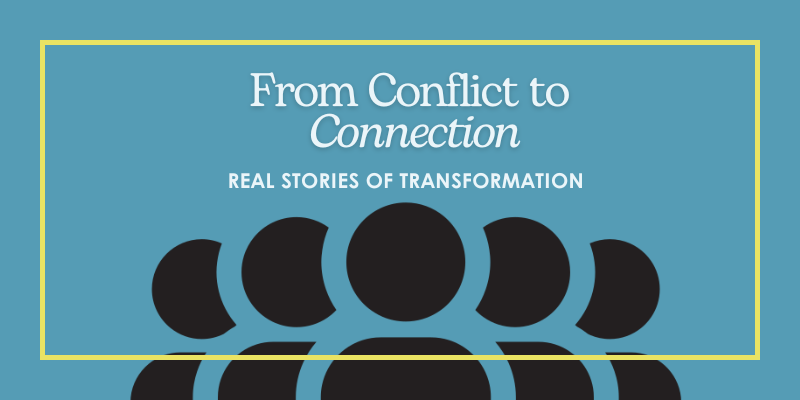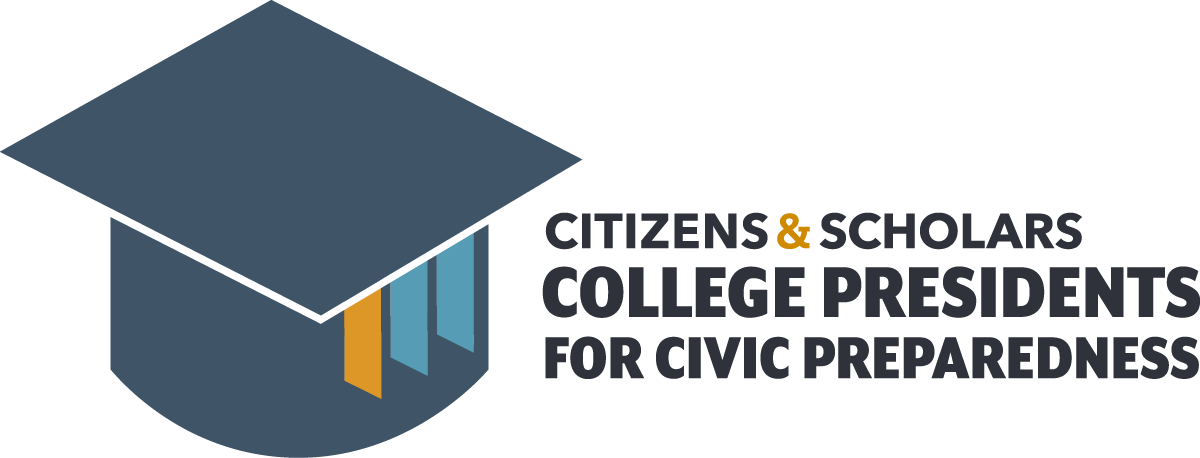From Conflict to Connection: Real Stories of Transformation

Productive dialogue is more than a skill picked up in the classroom. The objective measure of its effectiveness is when students transform their relationships with others.
Listening with curiosity, seeking to understand another person’s lived experience, and being able to adapt previous beliefs all show that a person has internalized productive dialogue skills.
Here are a few examples of productive dialogue in action:
University of Pittsburgh
Calem Mattheson, Chair of the Department of Communication, teaches a course on propaganda and disinformation at the University of Pittsburgh where he asks students to write a paper about a conspiracy theory that they potentially believed and to analyze it logically while explaining its social consequences. He creates breakthrough moments where his students can learn to dissect information in a non-judgemental environment, and potentially arrive at a deeper understanding.
Hear from Faculty:
“The first time I gave this assignment, a student came up to me after it was due and said that it had changed their lives in the way they relate to their families. Their whole family were very serious believers in a particular conspiracy theory, and they not only changed their minds but also managed to convince the rest of their family to reassess this deeply held and, frankly, very dangerous belief.” – Calem Mattheson
Macalester College
When Suzanne Rivera from Macalester College and Corbin Hoornbeek from the University of Northwestern heard about Braver Angels’ project, Reduce the Rancor Minnesota, they decided it was a good model for young people across their campuses. Representing ideologically blue and red campuses, they wanted to bring students together to find shared humanity and bridge divides across political lines. The monthly dinner series touched on topics as broad as ‘where do you get your core values?’ And an exercise in which participants were asked to express one fear and one hope for the Trump administration. The program has inspired other civil discourse initiatives on Macalester’s campus, including an orientation module, commencement speeches, and the development of new courses. Student participants from past years will become mentors in upcoming years.
Hear from a student:
“Given the strong political and cultural divides that exist in our country today, it is very easy to surround yourself with individuals who hold the same beliefs as you. As a result, walls are built and dialogues with people of different ideology are overlooked. This has negative ramifications because it reinforces our biases and strengthens our divide. RtR [Reduce the Rancor] has allowed me to tear down these ideological walls and zoom in on the similarities I share with different people. In doing so, I have forged real connections with individuals I would have never spoken with. I have shared these perspectives to the Macalester community through classroom settings and conversations with friends. As a result, I believe my peers are more aware of our commonalities than our perceived differences.” -Brady Thomas ’26
